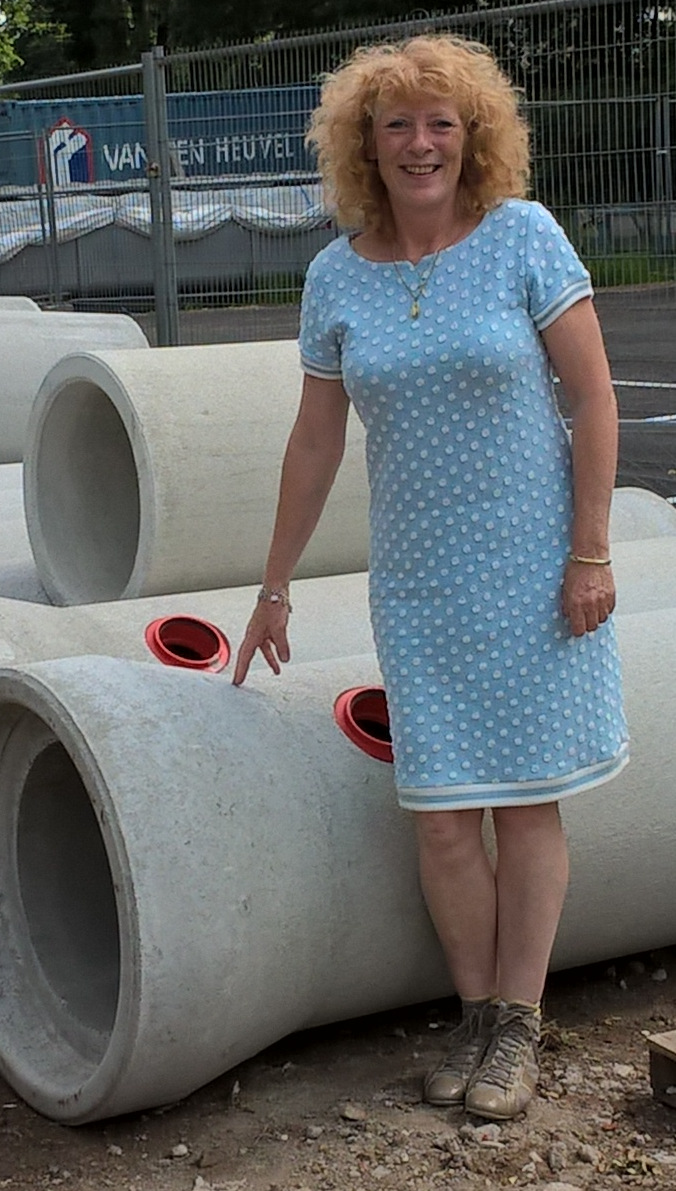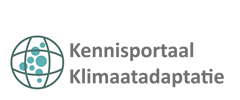Downspout disconnection coach for municipalities of Renkum and Veenendaal
In the municipalities of Renkum and Veenendaal, “downspout disconnection coaches” are encouraging residents to disconnect rainwater downspouts on their premises from the sewer system. This helps to reduce the risk of waterlogging during extreme rainfall. The efforts of the disconnection coaches and active campaigning by the municipality (billboards, disconnection kits, promo films, coupons, and newspaper articles) have resulted in the disconnection of some 8000 m2 of premises in Renkum in 2016 and 2017. The experiences of the disconnection coaches will be bundled and published.
The disconnection coaches aim to encourage residents to disconnect their downspouts and have rainwater infiltrate into the soil and/or (temporarily) to store rainwater. To this end, the coaches provide the residents with information and advice.

Image: Downspout disconnection coach Lanny Olie
Meetings are held to explain the importance of disconnecting downspouts and to answer questions from residents. To help them get started, a comprehensive folder with simple yet creative examples helps them get started. Furthermore, residents are provided with tailored advice. One of the most important aspects of these meetings is kindling enthusiasm among residents.
Lanny Olie has served as a downspout disconnection coach for several municipalities since 2016. As municipal policies for rainwater disconnection differ widely, she has gained a great deal of experience on how residents respond to the different approaches. For example, she has found that municipal grants to promote downspout disconnection will garner sympathy and interest yet will not be a decisive success factor. To lower the threshold for residents, emphasis could be placed on the gains in perception: rainwater brings your garden to life!
A package is currently being developed in which all the experience and success factors have been incorporated. This package will be publicly available to municipalities and district water boards by August 2018. The package will contain, inter alia:
- Presentation
- Downspout disconnection team training
- Training and hands-on days
- Teaching kit for primary schools
- Folder of examples
- Promotion material
Lessons to be learned from the project
- Contact the housing corporations before launching a campaign. Ask for their active or passive cooperation.
- Adopt a district-based approach: a district-level focus will garner more interest as a result of social cohesion.
- Designate ambassadors.
- Organise a winter lunch for local landscaping and handyman companies, and give a presentation on the importance of disconnecting downspouts.
- Example is better than precept. Organise an open garden weekend in which people who have disconnected their downspouts open up their gardens.
- Pass out flyers, but keep such flyers simple and show some appealing examples. In addition to above-ground disconnection, also refer to subsoil disconnection, but do not go into too much detail (refer, e.g., to a website). The flyer is intended to introduce the concept of disconnection; people who are interested in subsoil infiltration are often already a step ahead. Experience teaches that after reading a comprehensive flyer, people tend to remember “subsoil disconnection” mainly as digging, “something with crates”, and turning your garden upside down. Therefore, keep the threshold low by showing nice and simple examples.
- The municipality of Renkum has purposely refrained from formulating a quantitative target, also in order to prevent missing out on opportunities. Setting quantitative targets entails the risk of focusing solely on “big hits” (large surface areas, such as sports centres and major businesses). Although this will probably be most effective in generating disconnected surface area, one of the main results to be aimed for is the commitment of local residents to greening, climate adaptation, and the operation of the sewer system.
Contact person
Lanny Olie
Lanny Olie Afkoppelcoach
afkoppelen@veenendaal.nl / l.olie@renkum.nl
06 26 15 43 12
